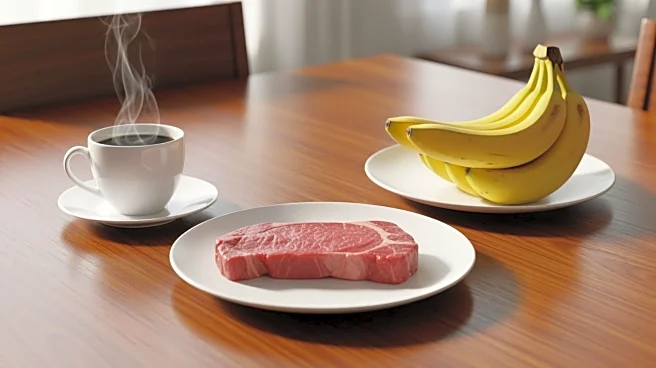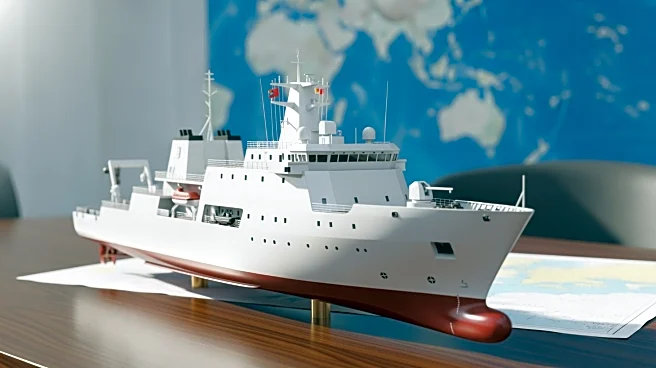What's Happening?
President Trump has signed an executive order eliminating tariffs on commodities such as beef, coffee, and bananas. This decision is part of an effort to address consumer frustration over high grocery
prices. The order follows recent trade agreements with countries like Ecuador and Argentina, aimed at reducing import levies on agricultural goods. The administration's move reflects a shift in trade policy, focusing on lowering costs for American households.
Why It's Important?
The removal of tariffs is significant in addressing economic concerns that have influenced recent electoral outcomes. By reducing tariffs, the administration seeks to alleviate the financial burden on consumers, potentially improving public perception of Trump's economic policies. This decision underscores the impact of economic pressures on political strategies and trade policy adjustments.
What's Next?
The executive order is expected to take immediate effect, potentially leading to lower grocery prices. The administration's focus on trade agreements with Latin American countries could further enhance economic ties and trade balance. This shift in policy may influence future trade negotiations and strategies.
Beyond the Headlines
The decision to end tariffs highlights the complex relationship between trade policies and consumer prices. It may lead to broader discussions on the effectiveness of tariffs as a tool for economic protection versus their impact on household budgets. The administration's approach could influence future trade strategies and economic policies.








